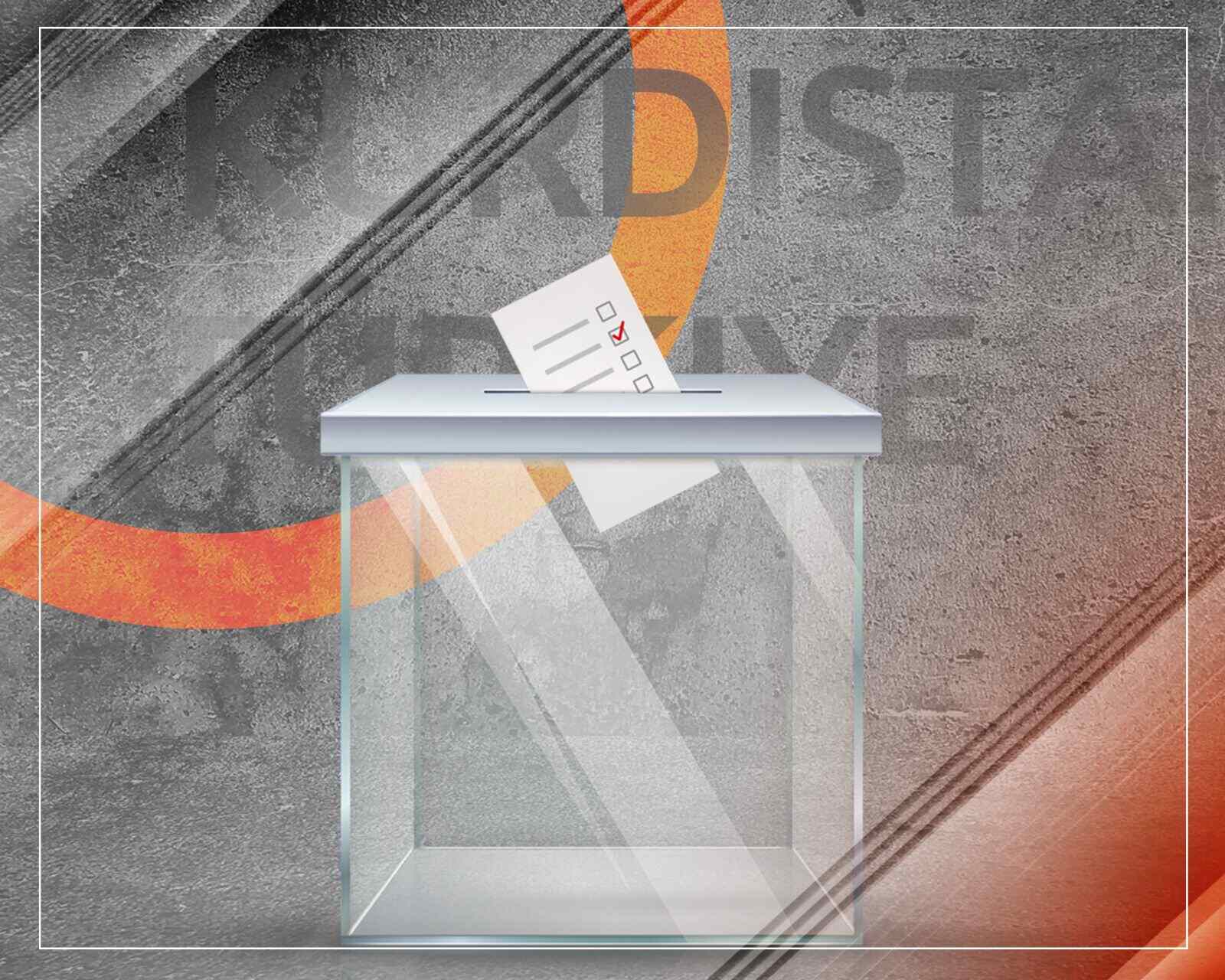Overview
While elections are integral to the democratic process, their occurrence sometimes precipitates tensions and, at times, heightened conflict in the Middle East. For instance, in Turkey, the outcomes in 2024 local elections hovers perilously close to inciting conflict, mirroring the unresolved tensions and underlying issues present in the Kurdistan Region's electoral landscape.
It wouldn't be an overstatement to suggest that the outcome of the March 31 elections in Turkey, despite marking another missed opportunity to address the Kurdish issue in the country in the early 21st century, instead escalated tensions. Meanwhile, the ongoing electoral crisis in the Kurdistan Region reflects a fresh quandary in Kurdish political affairs, one that promises to persist in its tense state unless addressed, at least in the immediate future, given the political intricacies of the region.
The Turkish Elections Through a Different Lens - The Kurdish Issue
Turkey's nationalist parties, including the MHP, Good Party, and Zafer Party, experienced a notable setback in the elections, presenting a potential opening for addressing the Kurdish issue. However, this prospect is likely to be disregarded, at least in the short term. The AKP contends that Dem Party's influence prompted a significant portion of its electorate to shift towards the CHP in key regions like Istanbul, Izmir, Mersin, and Adiyaman during the 2023 elections. For instance, during the 2023 elections, the party garnered 817,547 votes in Istanbul. However, in the latest election, only 183,805 votes were cast for its candidate, with the majority seemingly shifting towards the CHP. Therefore, the Dem Party is perceived as a contributing factor to the CHP's success in these areas, albeit not the sole determinant.
Another point is that the outcome of this election solidifies the CHP's position as a prominent force in the country's political landscape, boasting a 3% lead over the AKP. Therefore, any substantial constitutional amendments or resolutions regarding the Kurdish issue will necessitate their approval, which seems difficult to reach a compromise with the AKP on the Kurdish matter in the short term.
Another aspect to consider is the decline in votes for the Dem Party, despite being in the lead. Similarly, the AKP has seen dwindling popularity among Kurdish voters. This has paved the way for emerging contenders like the New Welfare Party and Hudapar to garner increased support within this demographic. Therefore, any deliberation on the Kurdish issue will necessitate engagement with these additional political entities.
The Kurdish voter turnout has seen a decline from 82 percent last year to 72 percent currently. Therefore, although the parties' vote shares may seem high, their actual votes have decreased. Take Diyarbakir, for instance: while in 2023, 82.18% of the population participated in the elections, this year saw a drop to 67.3%. In 2019, the HDP secured 474,645 votes in Diyarbakir, capturing 62.18% of the vote. However, in 2023, it (YSP) received 564,336 votes, and in this year's elections, it(Dem Party) garnered 441,375 votes, equivalent to 62.58% of the vote, despite an influx of over 110,000 new voters. Notably, a similar trend was observed in most other Kurdish cities, and this decline in votes for the Dem Party and AKP has bolstered other political actors in these regions.
Although the AKP has ceded its long-held position as Turkey's largest political party to its rival, the Republican People's Party (CHP), for the first time in 18 elections, it will continue to guide Turkey's domestic and foreign policy for the next four and a half years, and with the present results, the AKP does not see itself compelled to make any major change in this regard. The AKP faces potential hurdles in appointing trustees for Dem Party-run municipalities following the Van demonstration; however it is expected to persist in its efforts against the PKK, as underscored by the Turkish president in his post-election remarks. Furthermore, the emerging understanding between Iraq and Turkey reinforces the significance of maintaining the PKK conflict on Turkey's agenda.
Kurdistan Region's Election Puzzle
The matter of elections in the Kurdistan Region remains a tangled knot with an uncertain resolution. The 2023 Democracy Index rated Iraq's democracy at a mere 2.5 out of 10, indicating a prevalence of autocratic tendencies over democratic aspirations. Therefore, understanding parties' stances towards elections gains heightened significance within the framework of power balances.
In the past, Sadr declined to participate in the 2021 elections, citing concerns about power imbalances, until receiving assurances from party leaders. While the Iraqi prime minister's cabinet agenda included early elections, it has yet to gain substantial traction. Similarly, despite the Kurdistan Regional Government President's efforts, internal challenges within the PUK remained a significant factor contributing to the election delay, and currently, the KDP mayperceive the elections as the ultimate phase in solidifying the Iranian hegemony project and advancing its agenda to replace the Kurdistan Regional Government (KRG) prime minister, particularly in light of the Federal Court's rulings on pivotal matters such as oil, salaries, and elections, which have the potential to reshape the political landscape. Delaying resolution on the electoral issue is likely to serve the interests of certain Iraqi political factions seeking to impose further constraints on the Kurdistan Region, thereby perpetuating the debate over the legitimacy of the government.
Following the dissolution of the Kurdistan Regional Parliament, the Federal Court ruled on the PUK's complaint very late. However, its ruling did not satisfy the Kurdistan Democratic Party (KDP), deepening the rift between the two parties. Additionally, tensions escalated as Baghdad and Erbil failed to resolve the issue of unpaid salaries, a critical factor likely to shape voter behavior in the upcoming elections. This deadlock marked a turning point in the KDP's policy, prompting discussions about using the boycott card and even withdrawing from the political process in Baghdad.
The KDP's decision coincided with a pivotal moment in both domestic and foreign policy landscapes. The current political landscape in Kurdistan bears resemblance to the power dynamics of the 1990s, characterized by division, economic fragility, and internal discord. Cengiz Chandar recounts a meeting between Mam Jalal and Hoshyar Zebari with some US State Department employees in a cafeteria in Washington, highlighting the challenges faced by Talabani in building relations with the United States. However, the recent appearance of the PUK leader in Moscow, coupled with his warnings in Baghdad regarding potential instability resulting from US actions in Iraq, signals a shifting political climate in Kurdistan. While this situation has not yet undergone complete transformation, a US withdrawal could potentially reignite the polarization reminiscent of the 1990s. However, unlike the 1990s, Turkey, which historically influenced the balance of power in the Kurdistan Region, is no longer a major player. Additionally, the United States, which has served as a security umbrella for the Kurds, is facing pressure to withdraw.
Factors driving the KDP's decision
The saying "the Kurds have no friends except the mountains" reflects a strategic loneliness ingrained in Kurdish history, shaped by numerous geopolitical events spanning decades. The Kurdistan Democratic Party (KDP) likely senses the looming threat of yet another bout of strategic loneliness and wants to prevent it as long as it has the opportunity. Historically, the division of Kurds into regional power centers, dating back to the Safavids and Ottomans up to the present day, has paradoxically contributed to Kurdish survival, despite hindering the formation of an independent Kurdish state. As we approach the end of the first quarter of the 21st century, Ankara's geopolitical stance appears to be shifting towards maintaining a delicate balance with Tehran and Baghdad. Turkey's struggling economy and strained relations with its Western NATO allies have prompted Ankara to prioritize preserving these ties, at least for the time being. This situation appears to be advantageous for Iran, which enjoys close ties with the current Iraqi government.
Amidst ongoing developments, the revitalized Iraqi government has initiated talks with Ankara, focusing on two critical fronts: security and economy. However, the success of these discussions largely depends on obtaining Iran's approval.
Baghdad is particularly eager for Turkey's involvement in a major $17 billion development road project, potentially comprising around 40 percent of the endeavor, as per unofficial reports. Ankara's recent emphasis on resolving the PKK issue, especially following key bilateral exchanges including visits by Hashd al-Shaabi chief Falih al-Fayyadh, has garnered attention. During Saddam's reign, Iraq assisted Turkey in combating the PKK approximately 20 times. Baghdad's current proposals are likely to evoke similar memories among Turkish statesmen.
While Turkey finds it challenging to easily sever ties with Erbil, the looming question is whether Ankara will ultimately pivot towards Baghdad. Despite maintaining strong relations with the Kurdistan Region, Turkey notably remained silent during Iran's ballistic missile attack on Erbil and Baghdad's pressure on the region. The prospect of the Turkish president's visit to Erbil during his Iraq trip remains uncertain. These instances underscore how Ankara's security and economic imperatives may eventually compel it to consider Tehran and Baghdad's interests in its relations with Erbil, however, the trajectory of Turkey-US relations will be pivotal in shaping the situation. Interestingly, following increased speculation about the Turkish president's visit to Iraq, reports emerged of Erdogan's upcoming visit to the United States, where discussions on Iraq are anticipated to be a focal point.
Another key observation is that despite the United States not having formally agreed to withdraw from Iraq, it is currently making arrangements to host Prime Minister Mohammad Shia’ Sudani, who has consistently called for their withdrawal. This situation suggests a potential inclination by the United States to withdraw from Iraq during Sudani’s tenure.
Therefore, the KDP's decision likely extends beyond mere electoral considerations. It comes at a time when both the Sudani's government, the coordination framework, and the United States seek to demonstrate a stable and trouble-free environment in Iraq before the Sudani-Biden meeting. Furthermore, it precedes the upcoming visit of the Turkish president to Iraq, a period when both Baghdad and Ankara desire stability. Amid the escalating Gaza conflict, exacerbating tensions between Erbil and Baghdad may not serve the interests of many stakeholders. Additionally, many nations view the Kurdish presence in Baghdad as a stabilizing force, which could be jeopardized by the hypothetical withdrawal of the KDP. While Baghdad is unlikely to formally rescind court decisions, as suggested by the KDP, it may withhold concessions on matters such as salaries and electoral procedures. Failure to address these issues could potentially escalate tensions further.
Conclusion
The pre-election statements by Leyla Zana, Ahmet Turk, and even Salahaddin Demirtas, along with Erdogan's speech in Diyarbakir, had sparked hopes that despite the potential for Turkey to launch a large-scale military operation against the PKK in the coming months, a new phase of direct and indirect negotiations akin to the peace process might ensue. However, the outcomes of the municipal elections may have dashed those hopes. Factors such as the close ties between the Dem Party and the CHP against the AKP and the absence of elections for the next four years are likely to diminish the prospects of political dialogue for the foreseeable future. Regarding external relations, the Ankara-Baghdad understanding may set the stage for renewed clashes with the PKK.
In the Kurdistan Region, it's widely understood that elections cannot proceed without the KDP, just as they are incomplete without the PUK. Moreover, the potential absence of the KDP from the elections could trigger a chain of events impacting the security of the development road, and Iraq as a whole. Consequently, electoral dynamics in both Turkey and the Kurdistan Region extend beyond mere voting procedures, revealing a complex interplay of factors.






